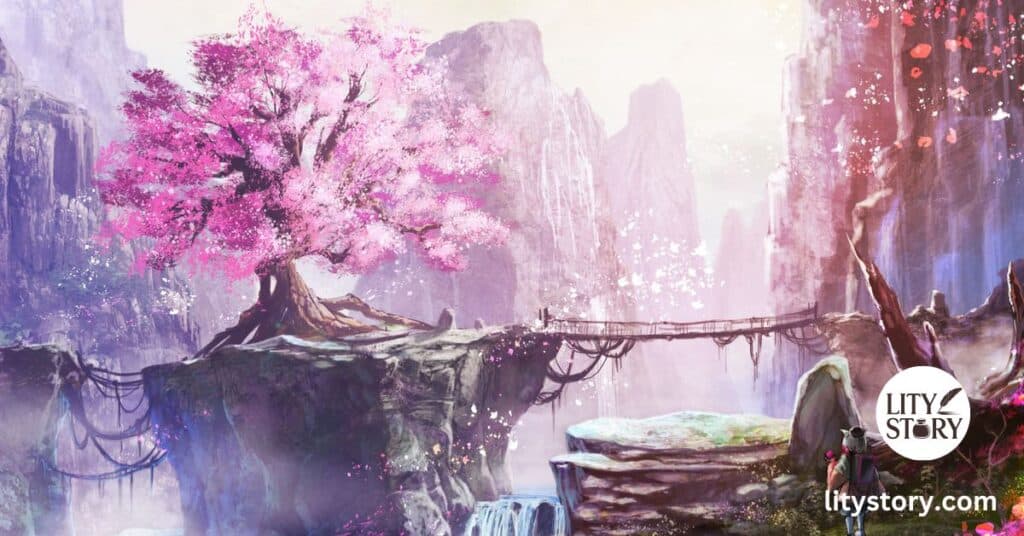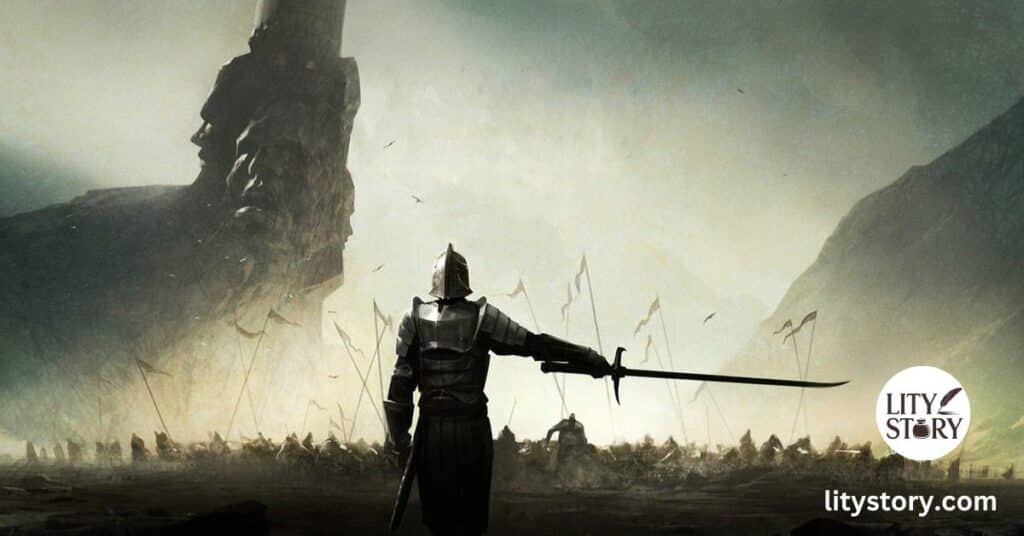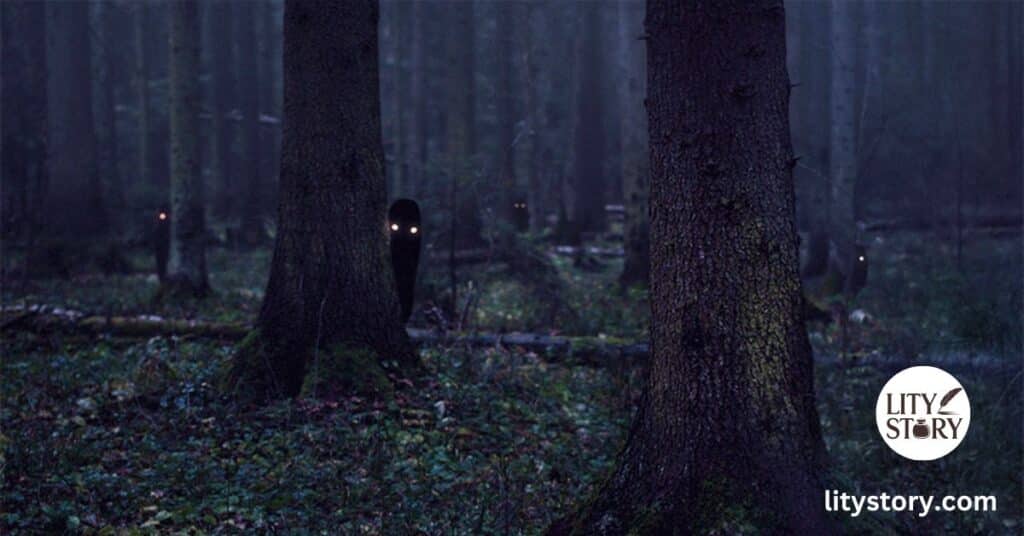Curiosity is the bedrock of human experience, pushing us to explore, to learn, and to find meaning. In fascinating poems about curiosity, this trait becomes a powerful lens through which poets explore life, the universe, and everything in between, capturing the essence of curiosity in words that resonate. Fascinating poems about curiosity capture how this innate drive shapes our understanding and fuels our quest for knowledge.
This article will explore the fascinating intersection of poetry and curiosity, using famous examples and original verses to examine how curiosity is woven into the fabric of poetic expression.
The Power of Curiosity in Poetic Themes

Curiosity drives poets to create, question, and communicate. From probing life’s biggest questions to reveling in the mysteries of the natural world, poets capture the essence of curiosity in their verses.
The Connection Between Curiosity and Knowledge
Curiosity compels us to search for knowledge. In poetry, this drive is often portrayed as a journey—a quest through landscapes of wonder, surprise, and revelation.
Poem: A Curious Quest
“Through mountains tall, I seek to know,
The mysteries buried deep below.
Each path, a question yet unasked,
Each turn, a truth yet unmasked.”
In this simple verse, curiosity is portrayed as a journey, with each step representing a layer of knowledge uncovered. Fascinating poems about curiosity capture the idea that knowledge is limitless, and that curiosity keeps us in a perpetual state of exploration, reflecting our endless quest for understanding.
How Curiosity Shapes Creativity in Poetry

Curiosity fuels creativity, inspiring poets to envision worlds and ideas beyond the ordinary. Fascinating poems about curiosity show how, when a poet’s curiosity is paired with creativity, it gives rise to new and imaginative expressions that capture readers’ hearts and minds, sparking a deeper connection to the world around us.
Poem on Imaginative Curiosity
Curiosity’s Canvas
“I dream of skies with colors rare,
And oceans light as morning air.
I wonder if the stars converse,
In whispers soft, a cosmic verse.”
This poem uses sensory-rich language and whimsical imagery to illustrate the boundless creativity that curiosity can ignite. It’s as if the poet’s imagination, spurred by curiosity, transports them to an entirely new world.
Poetic Curiosity and the Philosophical Search for Meaning
Philosophers and poets alike are driven by questions about existence, purpose, and truth. Poetry, however, offers a more personal and emotive exploration of these themes, often inviting readers to join in the contemplation.
Table: Themes of Curiosity in Philosophy vs. Poetry
| Philosophical Curiosity | Poetic Curiosity |
| Structured exploration | Emotive, open-ended reflection |
| Focus on objective truth | Focus on subjective experience |
| Analytical approach | Symbolic, metaphorical approach |
| Formal arguments and reasoning | Imagery, sound, rhythm |
| Aims for universal answers | Embraces ambiguity and mystery |
Poem: Curiosity’s Philosophical Edge
The Questioning Soul
“Why am I here? What path to take?
Where does the soul its shelter make?
The questions linger, soft and bold,
Through whispered dreams and tales retold.”
In this verse, curiosity acts as a philosophical companion, prompting questions that have no easy answers. Fascinating poems about curiosity capture the poet’s fearless embrace of uncertainty, where they welcome the questions as a source of purpose and intrigue.
The Role of Childlike Curiosity in Poetry
Children naturally embody curiosity, questioning everything around them and finding wonder in the ordinary. Poets often channel this sense of childlike curiosity, capturing the pure, unfiltered excitement of discovering something new.
Characteristics of Childlike Curiosity in Poetry
- Simplicity: Poems inspired by childlike curiosity are often simple yet profound, reflecting the straightforward yet deep observations of children.
- Playfulness: Language in these poems can be light, rhythmic, and playful, echoing the spontaneous curiosity of youth.
- Wonder: There is an unguarded sense of wonder in each line, as if the poet is experiencing the world anew.
Poem: A Child’s Wonder
Curiosity Through Young Eyes
“Why is the grass so green, so bright?
Why do stars shine only at night?
My mind’s a wheel, it spins and spins,
Gathering wonders from where it begins.”
This verse captures the essence of childlike wonder, with its simple questions and earnest desire to understand the world. Through such verses, poets remind us of the purity and joy that come with seeing the world through curious, youthful eyes.
The Quest for Knowledge: Curiosity and Learning
Curiosity drives learning, and fascinating poems about curiosity often portray the pursuit of knowledge as an adventure. Each poem reflects the challenges, surprises, and ultimate rewards of a life dedicated to understanding, capturing the thrilling journey of discovery and growth.
Characteristics of Learning in Curiosity Poems
- Metaphorical Journeys: Knowledge is often represented as a journey, symbolizing the progression from ignorance to understanding.
- Resilience and Determination: These poems capture the resilience needed to persist in seeking answers.
- Celebration of Discovery: Each new piece of knowledge is celebrated, much like a traveler reaching a new destination.
Poem: The Learning Journey
The Path to Knowing
“I walk the winding road alone,
Through questions sharp as stepping stone.
Each answer found, a treasure bright,
A spark within, a guiding light.”
This poem likens the search for knowledge to a solo journey, with curiosity as both a guide and a source of illumination.
Famous Poets and Curiosity The Power of Inquisitive Minds

Some of the greatest poets in history have centered their work around curiosity, exploring everything from human nature to the mysteries of the cosmos. Here’s a look at a few famous poets known for their inquisitive approach to the art form.
1. Emily Dickinson: The Eccentric Explorer of Inner Worlds
Emily Dickinson’s poems often probe deeply personal, introspective questions, using curiosity to explore the realms of emotion, spirituality, and the self.
Excerpt from “Hope is the Thing with Feathers”
“Hope is the thing with feathers –
That perches in the soul –
And sings the tune without the words –
And never stops – at all -”
Through poems like this, Dickinson exemplifies how curiosity allows poets to explore intangible ideas, such as hope and resilience, with powerful, memorable imagery.
2. Pablo Neruda: Questioning Life’s Mysteries
Pablo Neruda’s “The Book of Questions” remains one of the most curious collections of poetry, with each verse asking questions that have no straightforward answers.
Inspired Poem
“Does the sky remember its hue?
Does the ocean tire of blue?
Does the moon feel warmth, like me?
Or float untouched by what we see?”
Neruda’s poetry encourages readers to revel in life’s unanswerable questions, celebrating the joy of asking rather than the need to know.
3. William Blake: Wondering about Creation and Divinity
Blake’s famous poem “The Tyger” is a timeless example of curiosity about creation, power, and beauty. Through his words, Blake captures the awe and terror inherent in life’s biggest mysteries.
Excerpt from “The Tyger”
“Tyger Tyger, burning bright,
In the forests of the night;
What immortal hand or eye,
Could frame thy fearful symmetry?”
Blake’s work embodies curiosity about the dualities of life—creation and destruction, beauty and terror—illustrating how poetry can grapple with existential questions.
The Role of Imagination in Poems About Curiosity

Imagination is the spark that allows curiosity to transform into art. Poems about curiosity show how poets rely on their imaginative faculties to breathe life into their curiosity, creating worlds that draw readers into a shared sense of wonder, capturing the magic of exploration and discovery.
Characteristics of Imaginative Curiosity in Poetry
- Surreal Imagery: Imaginative curiosity poems often explore fantastical scenes that defy reality.
- Metaphysical Themes: These poems may ponder concepts that transcend the physical world, diving into questions about the nature of reality itself.
- Unexpected Metaphors: Imaginative poetry uses surprising metaphors that spark fresh ways of seeing and understanding.
Poem: Curiosity’s Fantasy
A World Beyond the Known
“I see a garden in the clouds,
With rainbow vines and silver shrouds.
The trees wear stars, the rivers gleam,
In curiosity’s boundless dream.”
In this poem, the imagination creates a dreamlike landscape, symbolizing
Conclusion
Embracing curiosity through poetry, curiosity is at the heart of poetry—it’s what drives poets to ask questions, explore new ideas, and create works that resonate across time and culture. Poems about curiosity remind us that life is a journey of discovery, and every question brings us closer to understanding the world around us, capturing the essence of our constant search for meaning.
As you explore these poems, let curiosity be your guide. Dive into the words, savor the questions, and embrace the mysteries they reveal. Curiosity is the door to endless possibilities, and poetry is the key.
FAQ’s
Why is curiosity a common theme in poetry?
Curiosity drives exploration and discovery, which makes poetry feel more engaging and thought-provoking.
How does poetry about curiosity encourage personal growth?
It helps readers reflect, question, and explore new ideas, sparking self-discovery and learning.
Can poems about curiosity boost creativity?
Yes, they inspire readers to think outside the box, fueling creative ideas and imagination.
Are there famous poets who focus on curiosity?
Poets like Emily Dickinson and Walt Whitman are known for exploring curiosity and wonder in their work.
How does curiosity in poetry benefit young readers?
It encourages kids to explore and ask questions, fostering a love for learning and discovery.

Litystoyr is the creative mind behind Litystory, a blog dedicated to helping readers navigate the complexities of canceling and activating various subscriptions. With clear, actionable advice, Litystoyr simplifies the process for users looking for easy solutions to subscription management and more.








